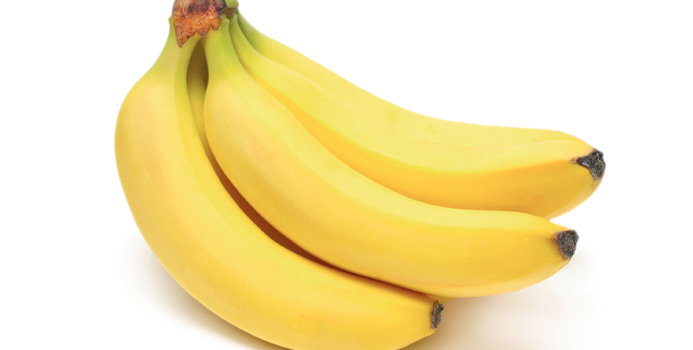Bananas are prized throughout the world for their unique, sweet flavor and pudding-like texture. American's consume more bananas than any other fruit for good reason. Bananas are portable, versatile, nutritious and available year round. They are also easy to digest; even babies can eat them (no teeth required).
This delicious, tropical fruit doesn't come from a tree, as commonly thought, but a large herb plant. The fast growing banana plant is cultivated for its prized fruit in warm climates, in over 100 countries, throughout the globe.
Nutritional Value and Benefits
Bananas are a good source of dietary fiber, vitamin B6, vitamin C, potassium and manganese. One medium size banana contains roughly 110 calories, 4 grams of dietary fiber and 400 mg of potassium (11 percent of the RDA).
Their high potassium content makes bananas a beneficial food for helping to regulate blood pressure, which could possibly reduce the risk of stroke.
Bananas are considered one of the good mood foods. The vitamin B6 they contain is thought to regulate mood. They also contain the amino acid tryptophan which converts to the brain chemicals serotonin and norepinephrine. Consequently, bananas may help to ward off depression.
Their portability, vitamins, minerals and high carbohydrate content make bananas a great choice for a post workout snack.
Bananas may have a protective effect against ulcers. It's thought that eating bananas helps to produce protective mucus against stomach acids. They also contain substances called protease inhibitors. These substances help to eliminate the bacteria that are thought to cause stomach ulcers.
Bananas can help to replenish some electrolytes that are lost with diarrhea. They also help with the other side of the elimination-problem coin; bananas high, soluble fiber content makes them a great food for helping to ease constipation.
Bananas help to promote probiotic bacteria in the intestines. These friendly bacteria are important for keeping the population of harmful bacteria in check and for helping the body to absorb important nutrients.
One study found that women who consumed bananas 4 to 6 times per week cut their risk of developing kidney cancer by half, compared to non banana eaters. It is thought that the protective antioxidants that the bananas contain were responsible for this effect.
Selection
Bananas are picked while green. You may find them at the store still in their unripe green state, yellow or fully ripened (yellow with brown spots). Choose bananas based on how soon you want to consume them. The greener the bananas the longer it will take them to fully ripen. The size of a banana doesn't affect its taste, so choose a size based on your needs.
Storage
Bananas should be stored at room temperature until they're reached their desired ripeness. They may be stored in the refrigerator after that to prolong shelf life. Storing bananas in the fridge will darken their skins, but the fruit will not be negatively affected. To ripen a banana quickly, store in a brown paper bag. Bananas provide the most antioxidant value when fully ripened.



